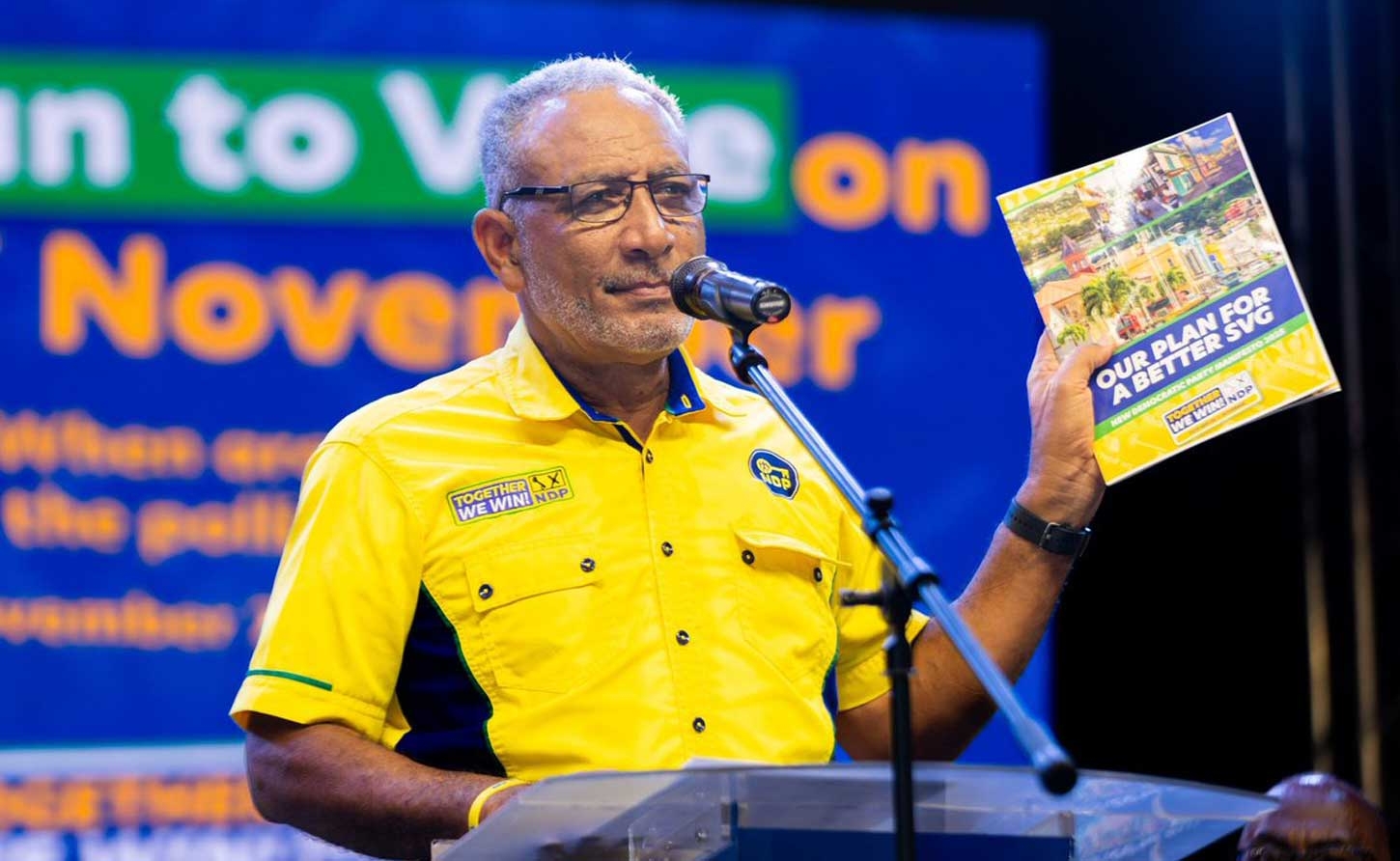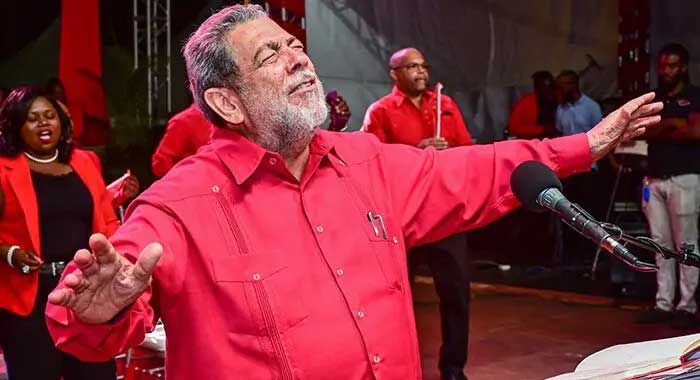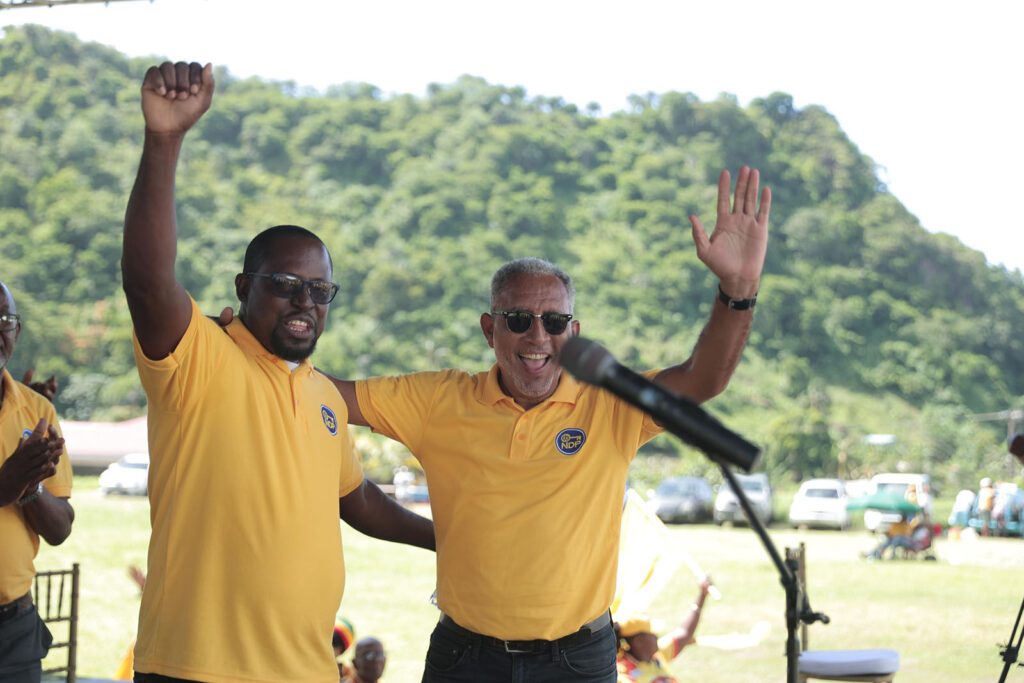ST. VINCENT | Washed Away: Godwin Friday's Yellow Wave Flushes Out 'Comrade Ralph' After 24 Years

Dr. Godwin Friday's landslide NDP victory ends unprecedented quarter-century reign, as Vincentians reject bid for historic sixth term
KINGSTOWN, St. Vincent and the Grenadines, November 28, 2025 - The numbers told a story of complete repudiation. Fourteen seats to one. The New Democratic Party swept into power with a commanding victory, leaving Dr. Ralph Gonsalves—the man who had governed St. Vincent and the Grenadines since 2001—clinging to just his own North Central Windward constituency.
Twenty-four years of uninterrupted power ended Thursday night not with a whimper of tight margins, but with a thunderclap that reverberated across the Eastern Caribbean.

Dr. Godwin Friday's victory represents more than just a change in administration—it marks the collapse of what Gonsalves himself had framed as an unstoppable political dynasty. Just a year ago, at his party convention, the outgoing leader had boasted that after a sixth victory, "the NDP would be effectively finished," a prediction that now reads like political hubris carved in sand before a tsunami.
The scale of the defeat exposes the hollowness of the Unity Labour Party's confidence. Preliminary results showed the NDP captured 11 of the 15 parliamentary seats, with some reports suggesting the final tally reached 14. These weren't narrow victories decided by handfuls of votes—they were decisive rejections in constituencies that had previously sustained the ULP's grip on power.
What drove this electoral earthquake? Friday's campaign centered on themes that resonated with voters tired of grand promises and meager delivery. The NDP pledged to eliminate fees at the Community College, abolish secondary school fees, and cover exam costs—tangible commitments that spoke to families struggling with educational expenses. Friday hammered the cost-of-living crisis he claimed had been "crushing families for months," while Gonsalves campaigned on continuity and political stability.
But stability loses its appeal when it becomes stagnation. Gonsalves had proudly noted that in 24 years, he never fired a minister or accepted a resignation—presenting this as evidence of governmental stability. To voters, however, it likely looked like an administration calcified by loyalty rather than energized by accountability.
The ideological contrast between the campaigns was stark. While the ULP campaigned on maintaining current foreign policy, the NDP advocated for closer relations with China and exploring Citizenship by Investment programs—positioning themselves as pragmatists willing to pursue economic opportunities the ULP's ideological commitments foreclosed.
Gonsalves' final days in power were marked by the desperation of a man who sensed defeat approaching. Two days before polling, he warned Trinidad nationals about eight lawyers he accused of working with the NDP to "rig" the election—allegations that smacked of pre-emptive excuse-making rather than legitimate concern. The claims found no traction with voters who had already made up their minds.

For Friday, 66, who holds a doctorate in political science and has served as MP for North Grenadines for 23 years, this represents vindication after years of patient opposition work. His message throughout the campaign was simple but powerful: "Things will not change until we change things." Voters clearly agreed.
The regional implications of Gonsalves' defeat extend beyond St. Vincent's shores. He had been the longest-serving democratically-elected state leader in CARICOM and globally after Samoa's former PM stepped down in 2021. His departure removes one of the Caribbean's most ideologically consistent voices on issues from Venezuelan politics to regional integration.
As Friday prepares to form his government, the focus shifts to whether the yellow wave that brought him to power can translate into the economic transformation and improved governance he promised. The NDP's landslide provides the mandate—now comes the harder work of delivering on 24 years' worth of accumulated frustrations and deferred dreams.
For Ralph Gonsalves, the man who entered office when many of today's first-time voters were still in diapers, Thursday's result represents the end of an era. His political longevity was remarkable. But in democracy, no reign lasts forever—especially when voters have been waiting a quarter-century for their turn to decide enough is enough.
-30-
